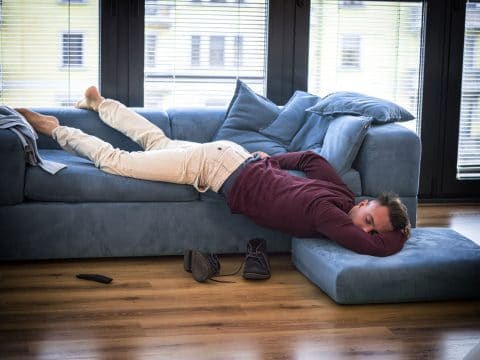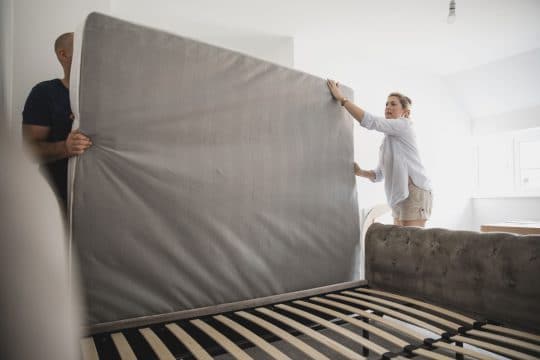- Your cart is empty
- Continue Shopping
Which Bed is Best for Back Pain?

Waking up with aches is a pain! If you’re experiencing back pain in the mornings, it’s possible that your discomfort is related to the mattress you sleep on. Back pain can prevent you from doing activities you love during the day, and it can also make it harder to sleep for as long as you need to (around eight hours) at night.
So, while back pain is a vast topic and the source itself requires a doctor to diagnose properly, you might be able to relieve some pain by changing your mattress or altering a few sleep habits. Here are some good questions to ask yourself:
1. Is your mattress causing the problem?
Your mattress may be causing an achy back or exacerbating already existing pain. Is your mattress more than 8-10 years old? That can mean springs or foam have worn out or the mattress material has worn unevenly, leaving you with less support than you need.
You may be sleeping on a mattress that is too soft or too hard, given your typical sleep position or your personal preference. Some sleepers like a firm mattress; others want to sleep on a softer bed. Usually, you’ll know which type of mattress you like when you test it out. However, if you’ve been experiencing pain, consider a different level of firmness or different kind of mattress.
2. Which sleep position do you spend most of the night in?
Different sleep positions can feel more or less comfortable, depending on the type of mattresses you’re on. Ultimately, you want your spine to be aligned as you lie down in bed, and you want to feel like your joints are supported and cushioned.
Side sleepers often prefer a softer mattress that allows shoulders and hips to be cradled comfortably, while keeping the spine relatively straight. Back sleepers can feel more comfortable with a firmer mattress, though this is pretty dependent on the individual.
If you sleep on your side, place a pillow between your knees or hug a body pillow to keep your hips even. If you sleep on your back, you can try putting a pillow under your knees to relieve pressure on your lower back. And if you sleep on your stomach, make sure you use a low profile pillow under your head to keep your neck in line with your spine.
3. Is a memory foam bed good for your back?
Foam beds have made incredible strides since they came to market. Many foam bed manufacturers offer multiple options, with a range from firm to soft mattresses. Foam technology is also advancing to include foams with cooling properties and foam mattresses with edges that are built to stay strong and prevent sagging. While foam beds provide excellent support and stability, there are also great hybrid and traditional mattress options. Your personal preference is really what matters most.
4. Have you tried different beds?
A good way to make a decision about the right bed for your back is to try a few out! If you travel and love a certain hotel bed, we can often offer an exact match with mattresses like the Jamison Resort Hotel Collection. Mattress Man sleep consultants can match the feel and construction of any resort or hotel bed. You can also ask friends and family for recommendations, and find out what they like about their beds.
Most importantly, come by a Mattress Man store to try out a variety of mattress types — memory foam, hybrid, and innerspring. We’re here to help you make the right mattress decision for your health.





